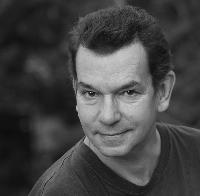Pronunciation of French loanwords in Dutch Автор темы: wagadugu
|
|---|
Routledge Dutch-English dictionary shows that the pronunciation of /g/ in allergie and energie are different, that is /g/ of the latter word is pronounced like French, and /en/ in enthousiasme and encyclopedie is also pronounced like French.
However, as I hear some Dutchmen speak, they pronounce those words not as foreign but as assimilated Dutch words.
The dictionary's pronunciation is archaic?
[Edited at 2007-10-31 22:38]
| | | | Anjo Sterringa 
Нидерланды
Local time: 20:31
английский => голландский
+ ...
| Never thought anything of it... | Oct 31, 2007 |
You are right about allergie and energie - never realised it is not logical at all . .
Enthousiasme is usually not pronounced very 'French' although I think you may see regional differences and differences between younger and older people.
I think I would pronounce it "anthousiasme" with a slight French /en/ and my mother probably says "ancyclopedie" also with a soft n...
| | | | Juan Jacob 
Мексика
Local time: 13:31
французский => испанский
+ ...
| All I know... | Oct 31, 2007 |
...that you shouldn't pronouce Van Gogh, but Van Joj, as G sound doesn't exist in Dutch.
| | | | Henk Peelen 
Нидерланды
Local time: 20:31
Член ProZ.com c 2003
немецкий => голландский
+ ...
ЛОКАЛИЗАТОР САЙТА | you mean van-joyriding? | Nov 1, 2007 |
Juan Jacob wrote:
...that you shouldn't pronouce Van Gogh, but Van Joj, as G sound doesn't exist in Dutch.
Funny that those 6th-11th letters of the alphabet f, g, h, i, j, k seems to really have a lot of different prononcations worldwide. I guess more than the other letters.
I think most Dutch people pronounce energie in the French way, but the Van Dale dictionary predicts "the Dutch way" (copy below doesn't render the right pronounciation symbols, however):
energie
ener•gie (niet: e•nergie)
/enerk’i/, /enerq’i/
de (v.); -ën
1668 ‹Fr. énergie ‹Lat. energia ‹Gr. energeia
Maybe it has to do with the second sound shift, where English has either a but I find it striking that in places where Dutch has that typical X-sound (as in Scottish loch) which you hear also a lot in (as far as I know) German, Polish, Russian and Hebrew, English has either a "soft k", y, f or w sound:
Dutch goed is English good
Dutch dag is English day
Dutch lachen is English laugh
Dutch volgen is English follow
whereas the Dutch "hard k" sound often is a (d/t)sj sound in English
Dutch keuken is English kitchen
Dutch kerk is English church
Dutch kaas is English cheese
Dutch berk is English birch
For foreignors the Dutch g is close to an h, whereas English g and h are pronounced dzyee and aidzj (well, about that).
For me that seems to show some resemblence with the second sound shift which produced German zwei, zwischen (pronouncation more or less tswei, tsweeschen) compared to English and Dutch two/twee and (be)twixt,(be)tween/tussen.
In a lot of case where Dutch seems to choose between either a hard k or hard h (is a Dutch g) English and Slavonic languages feature either a tsj (in Slavonic languaes written as a c as far as I know) sound or (English) a "soft k", y, f or w sound.
I always like to search for possible structure. Striking fact is that all consonants seem to "shift" when you make a linquistical joyride ... err journey through a number of akin languages, except for nasals (n, m) and liquids (l and r). Of course even here you find some exceptions on this exception:
German mit, Dutch met, Danish med is English with
German nass, Dutch nat is English wet
Dutch sloom seems to me akin to English slow (though hyperdictionary http://www.hyperdictionary.com/ refuses to support me this time).
| | |
|
|
|
Margreet Logmans (X) 
Нидерланды
Local time: 20:31
английский => голландский
+ ...
| No G-sound? Depends... | Nov 1, 2007 |
I'd say Spanish does not have a J-sound....since the Spanish pronunciation of J is our sound for G.
As in Juan.
Our J-sound is pronounced like the Y in Spanish. As in 'yo no soy marinero' (I just love La Bamba ) )
That's why there's a fonetic way of writing, I suppose, but I don't master that art.
As for the original question: these words are pronounced in more than one way, partly... See more I'd say Spanish does not have a J-sound....since the Spanish pronunciation of J is our sound for G.
As in Juan.
Our J-sound is pronounced like the Y in Spanish. As in 'yo no soy marinero' (I just love La Bamba ) )
That's why there's a fonetic way of writing, I suppose, but I don't master that art.
As for the original question: these words are pronounced in more than one way, partly because of regional differences in speech, partly because not all people realise they came from French and pronounce them like they are spelled.
The dictionary is not archaic, it just doesn't seem to register these variations.
Best regards,
Margreet ▲ Collapse
| | | | Ken Cox 
Local time: 20:31
немецкий => английский
+ ...
| with Margreet | Nov 1, 2007 |
If I may comment as a non-native:
What I learned from my Dutch teacher (a well educated and very intelligent person) is that well-educated Dutch people traditionally pride themselves on pronouncing foreign words as they are pronounced by native speakers of the language concerned. Naturally, this practice tends to erode as words come into relatively common use. Also, my impression as an outsider is that the level and extent of foreign language instruction in the Netherlands have decl... See more If I may comment as a non-native:
What I learned from my Dutch teacher (a well educated and very intelligent person) is that well-educated Dutch people traditionally pride themselves on pronouncing foreign words as they are pronounced by native speakers of the language concerned. Naturally, this practice tends to erode as words come into relatively common use. Also, my impression as an outsider is that the level and extent of foreign language instruction in the Netherlands have declined in the last decade or so, which further encourages the tendency to apply Dutch pronuncation to words of foreign origin.
Also, as Margreet mentioned, there are social and regional differences in pronunciation, just as in other countries, and any dictionary can only hope to represent some sort of more-or-less accepted usage -- which naturally does not mean it applies to all speakers.
[Edited at 2007-11-01 22:17]
[Edited at 2007-11-01 22:17] ▲ Collapse
| | | | wagadugu
испанский => английский
+ ...
Автор темы | Dank jullie wel! | Nov 3, 2007 |
Thank you all for kind and helpful comments.
[Edited at 2007-11-03 08:40]
| | | | To report site rules violations or get help, contact a site moderator: You can also contact site staff by submitting a support request » Pronunciation of French loanwords in Dutch | Trados Business Manager Lite | Create customer quotes and invoices from within Trados Studio
Trados Business Manager Lite helps to simplify and speed up some of the daily tasks, such as invoicing and reporting, associated with running your freelance translation business.
More info » |
| | Trados Studio 2022 Freelance | The leading translation software used by over 270,000 translators.
Designed with your feedback in mind, Trados Studio 2022 delivers an unrivalled, powerful desktop
and cloud solution, empowering you to work in the most efficient and cost-effective way.
More info » |
|
| | | | X Sign in to your ProZ.com account... | | | | | |







